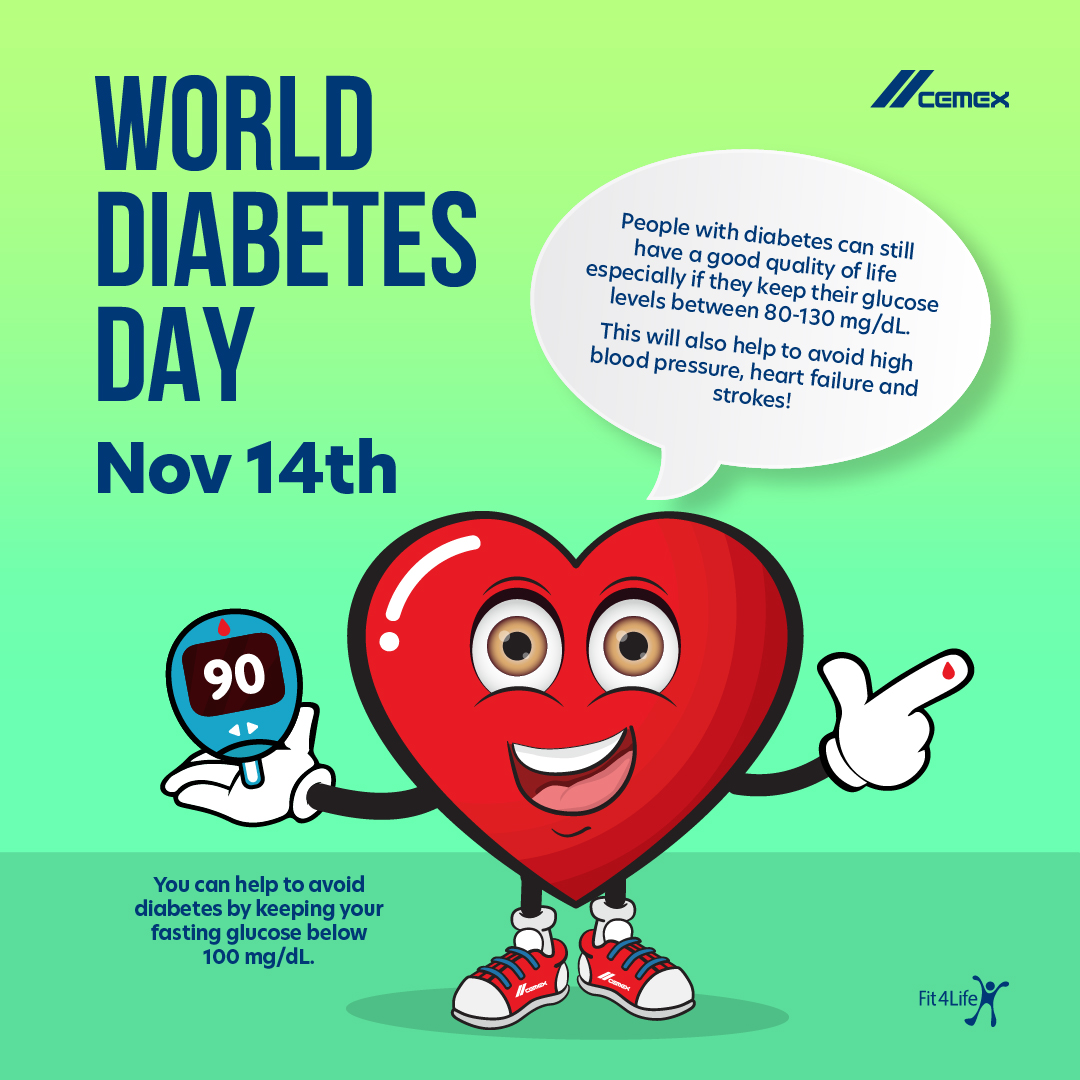World Diabetes Day – know your risk

Diabetes is a chronic, metabolic disease characterised by elevated levels of blood glucose (or blood sugar). The most common is type 2 diabetes, usually in adults, which occurs when the body becomes resistant to insulin or doesn't make enough insulin. Type 1 diabetes, once known as juvenile diabetes or insulin-dependent diabetes, is a chronic condition in which the pancreas produces little or no insulin by itself.
Currently, no one knows how to prevent type 1 diabetes, but it can be managed by following your doctor’s recommendations for living a healthy lifestyle, managing your blood sugar, making regular health checkups, and getting diabetes self-management education and support.
Simple lifestyle measures have been shown to be effective in preventing or delaying the onset of type 2 diabetes. To help prevent type 2 diabetes and its complications, people should:
- Achieve and maintain a healthy body weight;
- be physically active – doing at least 30 minutes of regular, moderate-intensity activity on most days. More activity is required for weight control;
- eat a healthy diet, avoiding sugar and saturated fats; and
- avoid tobacco use – smoking increases the risk of diabetes and cardiovascular disease.
Remember, the starting point for living well with diabetes is an early diagnosis. The longer a person lives with undiagnosed and untreated diabetes, the worse their health outcomes are likely to be.
Do you know the symptoms of type 1 diabetes? They are known as the 4Ts:
- Toilet – going for a wee more often, especially at night.
- Thirsty – being constantly thirsty and not being able to quench it.
- Tired – being incredibly tired and having no energy.
- Thinner – losing weight without trying to or looking thinner than usual.
Find out more here.
It is also important that everyone knows the signs to look out for and knows their risk of developing type 2 diabetes. Finding out your risk of type 2 diabetes only takes a few minutes. It could be the most important thing you do today. Join the 2.5 million people who have already completed the check – find out your risk here